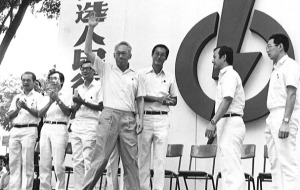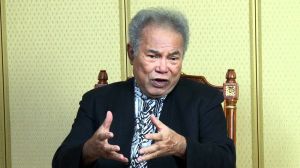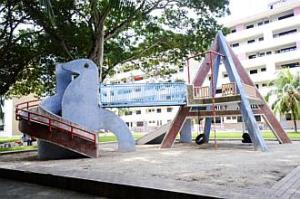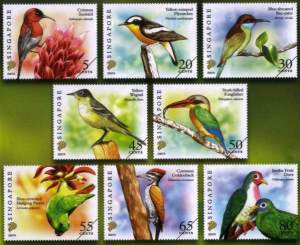From 1965 to 1989, rapid economic progress and development of physical infrastructure and landscape primed Singapore for transformation from a colonial entrepôt to an industrialized city. For survival, the leaders and people of Singapore strove to create a national identity through nation-building and modernization. First, “nation-building” refers to the pursuit of a pluralistic society with bilingualism; second, modernization embraces
change through industrialization and technological advances. For successful implementation of these two ideological frames, distinctive policies were enacted.
Edwin Thumboo, highly regarded in Singapore’s English Literature scene, is often seen as the foremost authority for literature pertaining to nation-building. Thumboo’s “Ulysses by the Merlion”, written in the 1970s just after Singapore gained independence, underscores the trials and tribulations that afflicted Singapore. Thumboo appropriates the myth of Homer’s Odyssey in the first stanza; this allusion to Greek mythology is something that may not readily be grasped by the everyday Singapore reader. Singapore “sailed many waters/ skirted islands of fire” and “heaved in battle against the Gods” then “made myths”. After “peoples settled” and “built towers topless as Ilium’s”, they put aside their “unequal ways” and after their “search for a centre”, “changed their gods/ kept some memory of their race” to carve “new visions”. Thumboo supports the Merlion’s identity and draws parallels to the greatness of Ulysses – he glorifies Singapore’s doggedness whilst carving an identity for herself.
Arthur Yap’s “2 mothers in a h d b playground” is set in the quintessential Housing Development Board’s playground. The setting is socially significant. The playground is a place where parents gather to converse while their children play. The HDB flat is “uniquely Singapore” and holds our nation’s social fabric together. Home to over 80% of the Singaporean population, the HDB flat promotes communal living to break down ethnic barriers. A Singapore icon, it is the epitome of efficiency: previously, the government succeeded in relocating Singaporeans from unhygienic slums, solving the nation’s housing crisis. Written in colloquial English and conversational in nature, this is a poem that the everyday Singaporean can relate to. Singlish, unique to Singapore, energizes the conversation. The poem is technically unusual. It is entirely written in small letters, to mimic speech patterns, which lends verisimilitude. The indented paragraphs help readers understand which mother is speaking. The two mothers are anonymous and representative of the Singaporean mother. Both emanate the “kiasu” spirit typical of Singaporeans as both mothers try to outdo each other: “ah beng’s father spends so much” meets a quick retort of “we also got new furniture” that is “so expensive”; to which, the other mother replies “that you can’t say” expensive things “must be good”. Each mother tries to steer the conversation to her advantage; at times, it seems that each individual is not listening to the other – a problem common in society today. The timelessness of this poem lies in its ability to capture issues that plague Singapore society. Yap, through light humor, appears to be criticizing modern materialism in Singapore.
Wong May’s “Marriage” is psychologically charged. “Marriage”, through flora and fauna imagery – “Miss Wisteria wedded Mr. Pine” in the presence of “violet blossoms” – pays homage to Singapore’s tropical topography. At the same time, “Marriage” seems to take a jibe at the merger between Singapore and Malaya. It seemed a doomed partnership from the start: flowers were “entangled” with leaves and the missus saw the relationship as transactional in nature; she wanted Mr. Pine to “accept” her flaws in exchange for her “bloom”. Mr. Pine was “struck with envy” when he saw symbols of freedom – “roving clouds” and “vagabonds” – and longed to “escape” so as to bask in the “bliss of being a bachelor”. Similarly, separation from Malaya made for a better Singapore.




